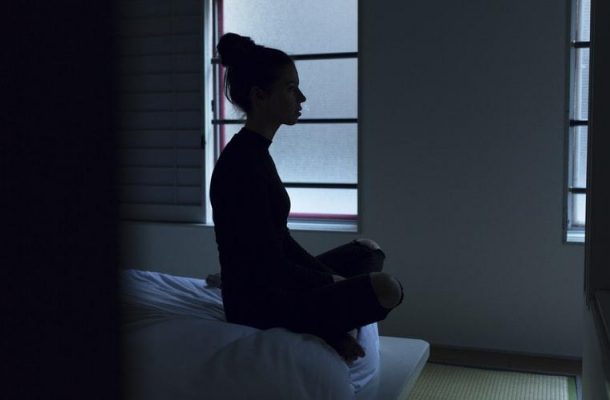5 ways to fight insomnia

Insomnia is, indeed, a modern plague. According to the Perelman School of Medicine at the University of Pennsylvania, 25% of Americans experience acute insomnia episodes throughout the year.
Although only 6% of these individuals develop chronic insomnia, that’s still a large number of people whose physical and mental health is being affected.
Insomnia can be caused by anxiety, stress, illness, or certain medication. The good thing is, you can manage the symptoms by incorporating simple changes into your routine and surroundings.
Here are five science-backed tips that will help you get there.
#1 Make Your Room More Sleep-Friendly
You might be surprised by this, but your environment affects your sleep significantly. External factors, such as noise, light, and temperature, can be really disruptive for sensitive sleepers and may even provoke chronic insomnia.
So, if you want to sleep soundly, you need to minimize their impact, and here’s how to do it:
• Light. Make your room as dark as possible. Darkness induces melatonin production and helps you fall asleep naturally. So, consider investing in blackout curtains or moving your bed away from the window. A sleep mask may also help; just be sure to choose the one that doesn’t press against your face too tightly. And finally, avoid electronics at least 2 hours before bed and turn off the Internet connection to prevent the sound of late-night notifications from waking you up.
• Noise. You can muffle the noise with other noises. A white noise generator is a device creating soundwaves that can overlap with other sounds and make them less annoying. This will come especially in handy for those who live in apartment buildings with noisy neighbors. Or, if the noise is coming from the outside, consider soundproofing your windows.
• Temperature. Adjust your AC or thermostat somewhere between 60 and 67F — according to science, this is the best temperature for sleeping. This temperature will help boost melatonin levels and ensure that you will fall asleep faster.
#2 Build a Routine
One of the possible reasons for insomnia is an inconsistent sleep schedule. If you fall asleep at a different time each day, your brain may keep you awake for hours.
Thankfully, you can improve the situation with these simple tips:
• Fix your sleep and wake times. The first thing you need to do is incorporate solid 7-8 hours of sleep into your daily routine and start going to bed at approximately the same time every night. This will bring your internal clock to balance, and your brain will naturally prepare you to fall asleep when your usual bedtime approaches.
• Create rituals. Rituals associated with sleep — such as taking a hot bath, sipping herbal tea, or putting on your favorite pajamas — can help your brain perceive sleep as something good and positive.
• Be consistent. Stick to your new schedule no matter what and try to maintain it even on weekends. A consistent routine may help alleviate anxiety and ensure that you will get a good sleep every night instead of tossing and turning.
#3 Upgrade Your Bed
Your bed can also be the culprit of your sleepless nights. If you sleep hot, have developed allergies, or toss and turn a lot instead of instantly getting cozy, chances are that you need to upgrade one of the following items:
• Mattress. The key feature of a good mattress is the ability to conform to your body in any position and support proper spine alignment. Be sure to test your mattress thoroughly in the store or buy from an online mattress brand that offers a trial period to find out if your new purchase actually works for you.
• Pillow. Choose pillows made of natural materials because they’re initially more durable and sleep cooler. Or, opt for memory foam pillows with gel infusions for proper support in your neck area.
• Sheets. Natural sheets are best for sound sleep. They feel pleasant to the touch and have great moisture-wicking and cooling properties.
#4 Learn to Deal With Stress
Stress and insomnia influence each other bidirectionally.
While stressful events play a major role in developing sleep-onset insomnia, the insomniacs generally tend to have a lower tolerance for stressful factors, which creates a vicious cycle.
If you’re constantly stressing out (many of us do, actually!), there is good news for you:
Some practices can help you manage stress levels and get to bed relaxed.
Here they are:
• Meditation. Meditation teaches you to be in the present moment and let go of your thoughts. This may help you reduce agitation and anxiety that often come with chronic stress.
• Guided breathing. Breathing exercises are one of the proven ways to fall asleep fast. The thing is, all your body processes sync in with your breathing rate. Thus, if you breathe slowly and deeply, you can activate your parasympathetic nervous system that is responsible for relaxation. This eventually may help reduce stress levels.
• Exercise. Regular physical activity helps you naturally get tired and improves stress tolerance. Both of these are beneficial for sleep.
#5 Try Aromatherapy
Essential oils have been used as remedies for thousands of years. Some of them, such as lavender, passionflower, lemongrass, or peppermint, have a relaxing effect and contain active chemicals that can help you wind down and naturally induce sleep.
Incorporating short therapy sessions into your evening routine may reduce stress and set you in the right mood for sleep. Also, some essential oils can act as air cleansers and help you breathe more easily during sleep, which will additionally improve the quality of your shut-eye.
Richard is passionate about helping people to sleep better at night. He is writing based on his own experience. Being a dormouse, he regularly needs more than 9 hours of sleep per night to feel rested.















